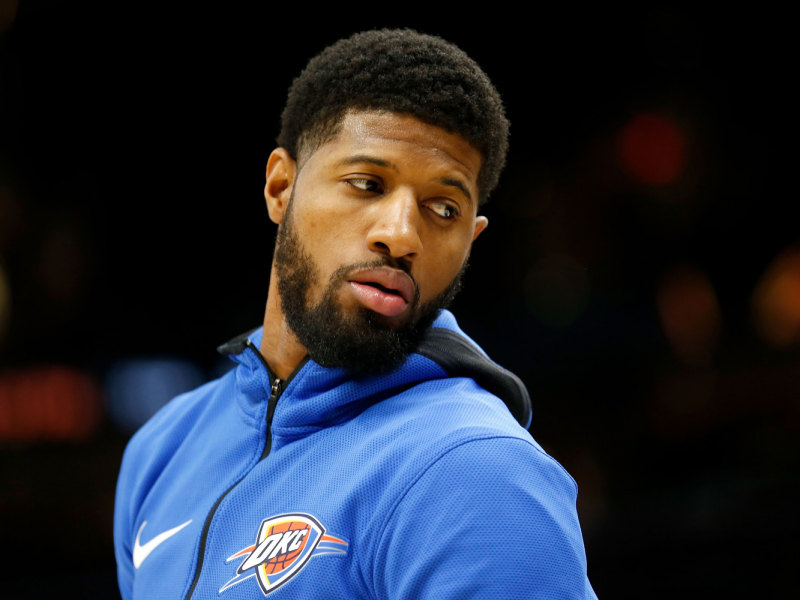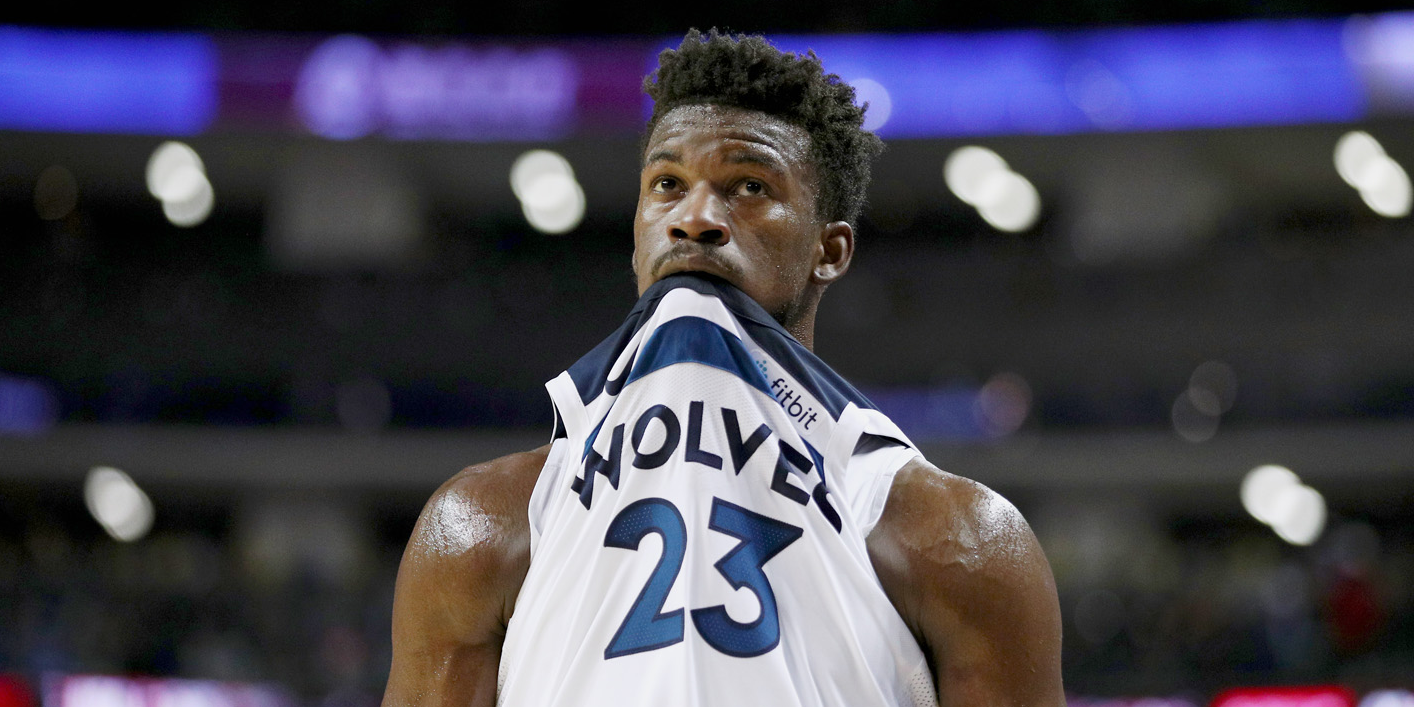- Jimmy Butler’s trade demand is the latest example of the quandary all NBA teams face with star players who are approaching free agency.
- Teams must evaluate whether it’s worth trading for a player they could perhaps sign in free agency or whether it’s worth giving up assets for a one-year “rental” of that player.
- There is also risk in not trading for a player, because that player could be dealt elsewhere then re-sign with that team, as the Los Angeles Lakers saw with Paul George.
Jimmy Butler has reportedly requested a trade from the Minnesota Timberwolves, and it’s going to resurface one of the biggest quandaries facing the NBA.
NBA players increasingly take their futures into their own hands in what The Ringer’s Bill Simmons has acutely titled “pre-agency.”
For NBA teams with star players, discussions about the future have to start at least two years before their contracts are up. If teams have an inkling they won’t be able to re-sign their stars, they have to consider shopping them, knowing their trade value will only decrease as their contracts wind down.
In recent years, we have seen more and more star players drop hints or outright request trades from their teams to both improve their immediate situation and better position themselves for the future. We’ve seen Kyrie Irving request to leave the Cleveland Cavaliers, Paul George hint that he would abandon the Indiana Pacers for the Los Angeles Lakers, and Kawhi Leonard request to be sent to the Lakers. Now it’s Butler’s turn.
The problem for the incumbent teams is nothing new - there's always a risk in letting a star player hit free agency. Will they re-sign or will they walk, leaving you with nothing to show for them? The Cavs learned this the hard way with LeBron James in 2010 (though trading him before free agency was out of the question).
But it's also becoming a problem for other teams around the league. Do you trade for a player who's going to hit free agency soon, giving up assets you could otherwise keep by signing that player? Do you risk not acquiring the player, only to see him go elsewhere?

The Lakers experienced this firsthand. George was heavily rumored to be eyeing the Lakers in 2018 free agency when the Pacers traded him to the Oklahoma City Thunder in 2017. George ended up enjoying his time in OKC and re-signing there with a four-year, $134 million deal this summer. The Lakers never made true bids to the Pacers for George, and then they never got him.
The Lakers are facing a similar situation with Leonard. Leonard made it clear he wanted to leave the Spurs for the Lakers, so the Spurs demanded a ransom for him. The Lakers balked at the price, thinking they could sign him next summer as a free agent, and the Spurs sent Leonard to the Toronto Raptors instead. There's still a chance Leonard joins the Lakers next offseason, but there's also a chance he follows George's path and re-signs with the Raptors.
One league source told Business Insider this offseason that teams might have become "emboldened" to try to trade for star players with only one year on their deals, thanks to the Thunder's success with George. It takes unique circumstances - belief in team culture, expendable assets, a desperation to win - but the road map is there. Shower that player with love, envelop him in your culture, and enjoy some success on the floor, and he might just re-sign.
The Knicks, the Nets, and the Clippers - the three teams Butler would reportedly sign extensions with if he were traded - must now debate whether it would be worth trading for Butler when he could become a free agent in July. The other 26 teams have to decide whether a rental would be worthwhile. And the Wolves, meanwhile, must deal with the reality of losing a star player barely a year after acquiring him.

